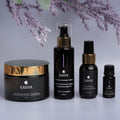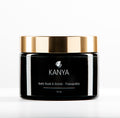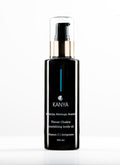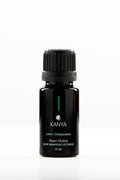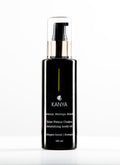Frankincense: The 5 Benefits And 5 Myths
Even for somebody starting their journey of using essential oils, one name that comes first and stands apart is Frankincense. Be it its fruity smell that soothes one and fills the atmosphere with positivity or its multiple benefits, Frankincense could be called the queen of all essential oils. This tree that typically grows in the dry mountainous regions of India, Africa, and the Middle East has a woody, spicy smell and is suitable to be either inhaled, taken as a supplement, or absorbed through the skin.
Even in traditional ayurvedic medicines, Frankincense is known to be used often. While there is no scientific evidence, this herb is known to help with cancer treatment.
In addition to this, owing to its soothing properties, Frankincense is often considered one of the best essential oils for chakra balancing.

Now, for something this useful, there are bound to be some myths around it. Hence, in this blog, we will discuss the five significant benefits and five myths surrounding Frankincense.
The 5 Benefits of Frankincense
1) Helps with Arthritis
Frankincense has anti-inflammatory effects, which, with prolonged application, help reduce joint pain. There have been multiple studies where Frankincense was found to prevent the release of leukotrienes- the compounds that cause joint inflammation in the firm place. This property emanates from the fact that Frankincense is rich in Terpenes, the compound known for its potent anti-inflammatory properties. A 2018 study, for instance, showed that regular Frankincense application helped reduce osteoarthritis pain and could significantly improve the mobility of the focus group.
2) Improves Digestion
Due to its anti-inflammatory properties and the presence of boswelic acid, Frankincense is also known to improve overall gut health, thus enhancing metabolism in general. In combination with other herbs, Frankincense is also known to reduce abdominal pain and gastric bloating during menstruation. In some cases, medications containing Frankincense extracts were also found to be more effective than those that didn’t in treating stomach ulcers.
3) Aids Asthma Control
Frankincense has been used for a long time to treat bronchitis and asthma. This is mostly because Frankincense restricts the production of leukotrienes that cause inflammation of the bronchial muscles by constricting them, resulting in asthma. In addition, it inhibits the products of Th2 cytokines that cause inflammation and overproduction of mucus, both known to invigorate the existing asthmatic tendencies.
4) Maintaining The Oral Health
Due to the presence of Boswellic acid, Frankincense has strong anti-bacterial properties that help prevent and treat oral infections. Frankincense was also effective against Aggregatibacter actinomycetemcomitans, the bacteria responsible for aggressive gum disease, in one of the studies. The study further found that by chewing gum containing Frankincense, one could lower the number of microbes in their saliva by up to half within five hours.
5) May help in Cancer Care
This bit is still under study and review with little to no evidence, but Frankincense has been found to have anticancer effects in several test tube studies. The presence of boswelic acid in Frankincense prevents the cancer cells from spreading by altering their genetic makeup.
So far, test-tube studies suggest that Frankincense may fight breast, prostate, pancreatic, skin, and colon cancer cells. It may also help reduce the side effects of cancer treatment.
In one study of people being treated for brain tumors, 4,500 mg of boswellic acid extract taken each day helped reduce brain edema — an accumulation of fluid in the brain — while lowering participants’ regular medication dose.
The Common myths around Frankincense
Now that we have discussed the five benefits, it’s time to discuss the five common myths about this herb. Let us have a look at them below:
- Prevention of Diabetes: There have been multiple studies, and none of them has produced any concrete evidence around the effectiveness of Frankincense in preventing the onset of or reducing the level of diabetes in people.
- Impact on Mental health: While Frankincense is known to have a soothing impact in general, however, there is no concrete evidence suggesting any long-term impact on the mental health. Frankincense helps you feel good, but that’s about it.
- Prevents Heart Disease: Frankincense does not have any constituents that may reduce inflammation of the heart or unclog arteries to improve blood flow.
- Boosts Memory: While studies have suggested such an impact in rats, no such effect has been observed in humans.
- Balances Hormones: Frankincense is said to delay menopause and reduce menstrual cramping, nausea, headaches, and mood swings. One recent study found that some essential oils increased the amount of estrogen in women’s saliva, which could be linked to reduced menopause symptoms. However, Frankincense was not found to have this effect, and research is needed to confirm any benefits of Frankincense on menopause
